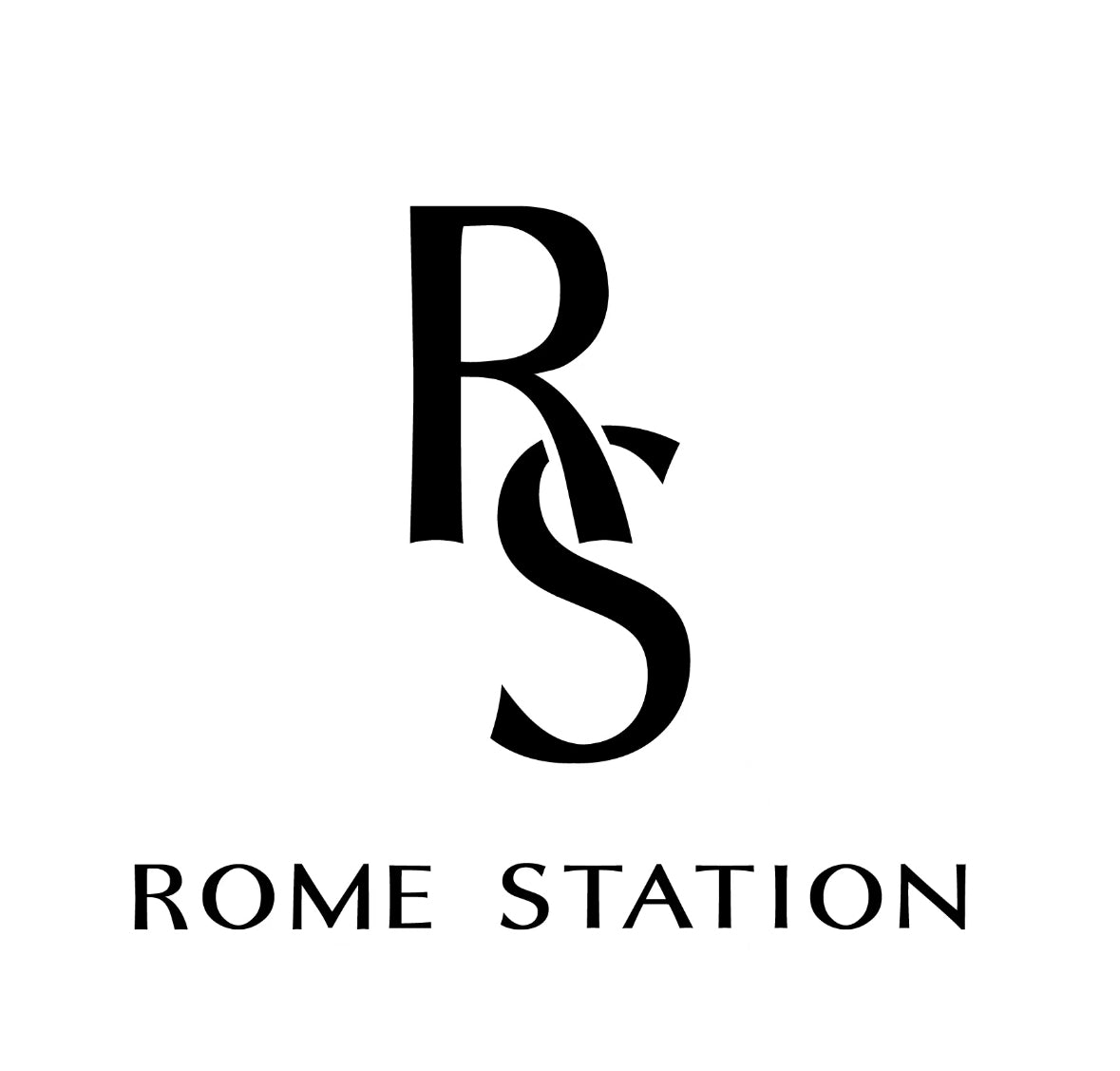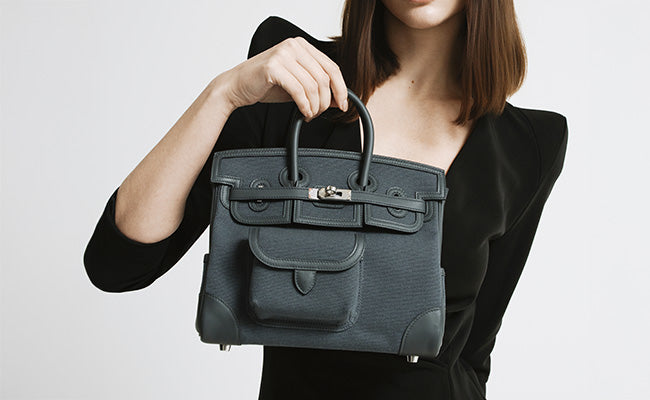
One Topic, Two Languages: Where English‑ and Chinese‑Speaking Hermès Communities Agree and Clash
Check out our Hermès collection and Birkin bags!
When you dive into the world of Hermès enthusiasts online, you quickly realize language isn't just a tool, it's the scaffolding for entire communities.
English and Chinese, speaking Hermès fans share a deep obsession with craftsmanship and exclusivity, but their digital hangouts feel worlds apart.
The way they talk about, chase after, and celebrate these coveted pieces? It's all filtered through their own cultural lenses.
Sure, both groups drool over the same iconic bags and scarves, but their approaches to sharing knowledge or expressing desire couldn't be more different. Chinese-speaking forums dissect investment potential and resale value with almost mathematical precision.
Meanwhile, English-speaking communities lean into emotional stories and personal collecting adventures. These aren't just superficial quirks, they are windows into how each culture views luxury, status, and what it means to belong.
After months of sifting through forum threads, slang, and social rituals, some patterns stand out. Bilingual collectors often switch languages depending on who they're talking to.
Each group invents its own terms and shorthand. It's wild how language and luxury intertwine, shaping the way we connect, or sometimes clash over shared obsessions.
Key Takeaways
- Language communities carve out their own rules for talking about luxury, even when they're obsessed with the same stuff
- Cultural values color whether folks focus on investment talk or get sentimental about their collections
- Bilingual fans juggle different norms and vocabularies, code-switching as they move between English and Chinese luxury spaces
Hermès Fever in Two Languages: Communities Side by Side
The Hermès bug bites hard, no matter which language you speak. English and Chinese fans both chase Birkin drops and Kelly waitlists, but their communities develop distinct personalities.
How English-Speaking Hermès Fans Connect
English-speaking Hermès lovers gather on spots like PurseForum and Reddit's r/Hermes. These places buzz with authentication guides and stories about store visits.
People here talk prices openly. They'll swap purchase histories, spending strategies, and even vent about sticker shock. That kind of directness fits the broader English-speaking approach to luxury talk.
Instagram is basically the catwalk. Folks curate feeds full of lifestyle shots, bags on brunch tables, in the front seat, you name it. Hashtags like #hermescollection and #birkinbag pull in big crowds.
Over on YouTube, creators break down leather types, hardware, and seasonal colors. Some of these videos rack up hundreds of thousands of views.
Authentication is a big deal. If you can spot a fake, you're a VIP. Knowledge gets you status here, and informal hierarchies form around it.
People also chat about resellers and consignment shops. Price tracking is a group project, stretching across different apps and sites.
The Rise of Chinese-Speaking Hermès Enthusiasts
Chinese-speaking Hermès communities are booming on WeChat groups and Xiaohongshu (Little Red Book). Buyers from mainland China, Hong Kong, and overseas Chinese all gather here.
Daigou (personal shopping) services get a lot of airtime. These professional shoppers, who can score bags in Europe or North America, charge a premium. It's a workaround for import rules and high taxes.
Status is shown differently. On Chinese platforms, bags appear alongside luxury cars, watches, and fancy apartments. It's about the whole package, not just one bag.
Group buying pops up often. Members team up to hit boutique minimums or snag limited editions. There's power in numbers.
Authentication has become a business. Companies like Chaopin issue formal reports. People here tend to trust third-party services more than peer opinions.
Price talk is full of currency comparisons. Members watch exchange rates and regional price gaps, always hunting for the best deal.
Digital Spaces Bridging the Gap
Bilingual creators now act as bridges, making content in both English and Chinese. They share insights and break down walls between communities.
Translation apps help information flow fast. An authentication guide in English might show up in a Chinese forum the same day. Tech is speeding up this cross-pollination.
Live shopping events now feature hosts who bounce between English and Chinese. Resellers on Instagram Live do this to reach everyone at once.
Sometimes, info spreads faster in one language group. Price alerts and stock tips jump across platforms, thanks to translator accounts.
International buying trips get documented in both languages. Whether it's a Paris boutique or a Milan pop-up, fans from both sides tune in for insider views.
All this overlap creates a quirky hybrid vocabulary, Mandarin words for leathers mixed with English brand lingo. It's a mashup that shows just how global the Hermès world has become.
Shared Passions: Where English- and Chinese-Speaking Fans Agree
Despite language barriers, both camps obsess over the same bags, geek out on craftsmanship, and love sharing their Hermès moments online. These shared fixations build bridges across cultures.
Obsession with Birkin and Kelly Bags
It's no secret: Birkin and Kelly bags are the holy grail for both English and Chinese fans. The lingo around these icons barely changes between languages.
You'll see "Holy Grail" and "unicorn bag" everywhere, even in Chinese forums. Sometimes English terms just get plopped right into Mandarin posts, "dream bag" shows up a lot.
Color favorites are almost identical:
- Black and Gold top the charts
- Rose Gold hardware gets everyone hyped
- Limited editions spark feeding frenzies on both sides
People in both groups know their leathers, Togo, Clemence, Epsom, and toss those words around like old pros. Chinese fans sometimes pick up English just to keep up with Hermès talk.
Waiting lists are a universal pain. Whether you're talking about "the call" in English or celebrating your bag assignment in Mandarin, the rollercoaster of hope and frustration feels the same.
Hermès Craftsmanship Admiration
Everyone's in awe of artisanal excellence. Both English and Chinese speakers show off their knowledge of construction techniques, sometimes in surprisingly technical detail.
Some words just cross borders. Terms like saddle-stitching, leather graining, and hardware finishing appear everywhere. Chinese fans often mix in English terms with Mandarin explanations.
Both sides swap detailed authentication guides:
- Comparing stitching quality
- Analyzing stamp placement
- Weighing hardware
The respect for French heritage is huge. Whether in English or Chinese, people love talking about the Hermès workshop tradition.
There's a shared belief in quality over quantity. Debates about investment value, leather care, and durability pop up in both languages.
Unboxing and Reveal Trends
Unboxing a Hermès bag? That's a universal ritual. Doesn't matter if you're in Toronto or Shanghai, the orange box gets hearts racing everywhere.
The reveal formula is basically the same:
- Slow, dramatic box opening
- Close-ups of hardware and stitching
- "Mod shots" showing how the bag looks when worn
Influencers in both languages use the same kind of words: "stunning," "gorgeous," "perfect." It's a goldmine for English learners wanting to expand their vocab.
Hashtags like #HermesUnboxing, #BirkinReveal, and #KellyBag trend globally. In those moments, language fades into the background and it's all about the excitement.
People crave real reactions more than polished videos. That burst of joy when someone gets their dream bag? It translates perfectly, no matter the language.
Photography styles are also similar, clean backgrounds, soft lighting, lots of angles to show off the details everyone cares about.
Culture Clash: Where Language Influences Community Differences
Language shapes how we show off our luxury tastes and interact with fellow fans. English and Chinese Hermès lovers often split when it comes to color preferences, spending habits, and how they behave online.
Preferred Bag Colours, Styles, and Personalization
English-speaking communities love those "Instagrammable" neutrals:
- Etoupe and Gold are big favorites
- Black is the go-to for versatility
- Rose Sakura gets everyone talking during seasonal drops
Classic shapes like the Kelly 25 and Birkin 30 rule. Personalization? Usually just a twilly or charm, something that pops in photos but doesn't scream for attention.
Chinese-speaking collectors go bolder. Red is huge for its lucky vibes, Rouge Hermès and Rouge Casaque are must-haves. Even though orange is the Hermès signature, some see it as unlucky, so it doesn't always fly.
Cantonese speakers often lean toward structured bags like the Constance. The demand for auspicious colors means certain shades disappear fast in Hong Kong but linger in London.
Bilingual collectors play both sides, sometimes picking up "showstopper" bags for Chinese circles and "everyday luxury" pieces for English-speaking friends.
Varying Attitudes Toward Luxury Spending
How people spend on luxury says a lot about their culture.
English-speaking communities love the "investment piece" angle. People justify splurges by:
- Talking up resale value
- Calculating cost-per-wear
- Repeating the "timeless elegance" mantra
Financing options are fair game. Payment plans get discussed openly, and luxury spending is treated almost like a budgeting exercise.
Chinese-speaking collectors usually pay cash. It's a sign of stability. In some circles, even mentioning payment methods feels awkward, everyone assumes you pay upfront.
Gift-giving is a bigger deal in Chinese culture. While English speakers mostly buy Hermès for themselves, Chinese fans often buy as gifts for festivals or business.
Sometimes, people switch languages depending on the topic, using English for casual money talk, but switching to Chinese when things get serious.
Social Media Etiquette and Slang
Online etiquette splits sharply along language lines.
English-speaking collectors hang out on Instagram and TikTok. Hashtags like #hermescollection and #birkinbabes pop up everywhere. Humble-brags are common, "just picked up this little beauty" with a not-so-humble photo attached.
Slang evolves fast. "Unicorn" means a rare find, "holy grail" is the dream bag. People share authentication tips openly and build tight-knit communities.
Chinese-speaking fans stick to WeChat groups and Xiaohongshu. Privacy is key, purchases are shared in trusted circles. Sometimes, bags are referenced by codes or numbers, especially in Cantonese-speaking groups.
Authentication tips get passed around quietly, through trusted contacts rather than big public posts.
Bilingual members act as translators and cultural guides. They'll post the same reveal on Instagram in English and on WeChat in Chinese, tweaking the captions to fit each audience.
Code-Switching, Slang, and the Hermès Lexicon
Hermès fans, whether they're chatting in English or Chinese, have built a quirky shared language. Official brand terms mix with local slang, creating an insider vocabulary that reflects each group's unique relationship with the brand.
Mixing Hermès Lingo with Local Languages
Code-switching is everywhere. English speakers might drop in 配货 (pèi huò - bundling purchases) because there's just no English word for that Hermès ritual.
Chinese collectors love using "SA" (Sales Associate) and "wishlist" in English, skipping the Mandarin versions. Some English Hermès terms have just gone global.
You'll spot the character 爱 (ài, "love") in posts about new bags. It's not weird to see "Finally got my 爱马仕 Birkin!", mixing Chinese with English excitement.
Pronunciations shift too. "Birkin" is "柏金" in Chinese, but bilingual fans switch back and forth depending on who they're talking to.
From 'Quota Bags' to '代购': Popular Terms Explained
| English Term | Chinese Equivalent | Meaning / Notes |
|---|---|---|
| Quota Bag | 配额包 | Birkin, Kelly, Constance |
| Dessert Bag | 甜品包 | Smaller, easier-to-get bags often offered to build purchase history |
| Holy Trinity | 三大金刚 | Birkin, Kelly, Constance |
| Unicorn | 极品包 | Extremely rare, highly coveted pieces |
| Individual Seller | 代购 | Personal shopper / private seller |
代购 is now universal, even among English speakers. It means a luxury-savvy personal shopper, and everyone gets what it implies.
"Pre-loved" feels warm and fuzzy in English, but Chinese just says "二手" - straight to the point, no frills.
Funny and Unique Phrases Born on Forums
Online communities have come up with some wild, creative expressions that blend languages in ways only the internet could manage. "Bag math doesn't math" pops up in Chinese forums as "包包数学不数学," poking fun at the sometimes nonsensical logic behind our bag purchases.
"橙盒综合症" (chéng hé zōnghé zhèng) or "orange box syndrome" is a fan favorite, basically, that giddy rush whenever you spot the iconic Hermès packaging.
We also talk about "Hermès homework," or in Chinese, "爱马仕功课," to describe the research phase before hitting the boutiques. It's a given: you have to study up on collections, get a feel for your sales associate, and figure out how each store runs.
"Blessed by the quota gods" morphed into "配额之神眷顾" on Chinese forums. It nails that slightly desperate hope we all feel when trying to score a dream bag.
Some phrases just refuse to translate cleanly. Chinese collectors use "种草" (zhòng cǎo, literally "plant grass") to mean "creating desire for something." English speakers have pretty much borrowed this whole concept, since "enabling" doesn't quite have the same nurturing ring to it.
Bilingualism, Education, and the Luxury Experience
Language skills shape the Hermès shopping experience in ways you might not expect. Educational backgrounds and generational shifts change how bilingual fans move through the brand's exclusive world.
Language Proficiency and Navigating Hermès Boutiques
Walking into a Hermès boutique, whether in Paris or Hong Kong, takes more than cash. You need a bit of linguistic savvy. Bilingual collectors often have an edge that monolingual shoppers just don’t.
People who learned English as a second language and now speak it fluently can pick up on the subtle social cues that define Hermès culture. They get the direct style preferred in North America, but also the more nuanced approach you find in Asia.
Some practical perks:
- You can share your preferences in any market
- You get the cultural context behind sales associate interactions
- You might catch wind of exclusive releases through connections in different regions
Chinese-speaking collectors with strong English skills juggle waitlists across continents. They keep up with sales associates in Vancouver, while building ties in Shanghai or Taipei.
Hermès, as a company, seems to reward this flexibility. Store managers often prioritize clients who can switch languages smoothly during trunk shows or private appointments.
Bilingual Education Shaping Fan Interactions
Those of us who went through dual-language programs bring a different flavor to Hermès communities, both online and off.
People who learned English as a second language often analyze bag construction or leather quality with extra care. Maybe it's all that practice managing two languages, pattern recognition just comes easier.
Some patterns stand out:
- More detailed product comparisons between markets
- Strong fact-checking in authentication talks
- Better cultural sensitivity in international groups
Collectors with formal bilingual education tend to keep discussions on track. They help bridge gaps between English-only and Chinese-only speakers in Facebook or WeChat groups.
These backgrounds shape buying habits, too. Bilingual collectors research in both languages, digging up reviews and info that monolingual buyers might miss.
Generational Views: Parents vs. Next-Gen Collectors
First-generation collectors often see bilingualism as a practical tool for luxury shopping. They want to communicate with sales associates and understand product details.
Their kids, though? Second-generation collectors use their language skills to build followings and communities. They post in both languages, reaching across cultures.
Parent priorities:
- Direct communication for purchases
- Understanding warranty and service info
- Building long-term SA relationships
Next-gen approaches:
- Making bilingual Instagram or YouTube content
- Joining authentication communities
- Linking collectors from different cultures
Sometimes, language choices spark a bit of friction on shopping trips. Parents might stick to their native language, while their kids prefer English, maybe for the status it brings in luxury circles.
The generational split changes collection strategies, too. Younger bilinguals use their language skills to chase limited releases globally. Parents focus more on building ties with their local boutiques.
How Language Policies and Society Shape Hermès Fandom
Language dominance in luxury markets builds real barriers between English and Chinese Hermès fans. Meanwhile, government policies shape how Chinese-speaking communities talk about the brand.
Language Dominance in Global Luxury Communities
English still rules as the main language for international luxury chats, especially on social media where Hermès fans gather. Major influencers, brand announcements, and resale sites mostly stick to English.
This creates a sort of hierarchy. English-speaking collectors get info first, straight from brand channels and Western fashion media. Chinese-speaking groups, meanwhile, build their own networks, which sometimes move even faster than the official ones.
So, we end up with two different information worlds. English-heavy platforms like Reddit and Instagram have their own vibe. Chinese platforms like Xiaohongshu and WeChat set their own norms for bag talk, authentication, and shopping tips.
Platform breakdown:
- English: Reddit, Instagram, PurseForum
- Chinese: Xiaohongshu, WeChat, Weibo
- Bilingual bridges: Some YouTube channels, international reseller sites
Impact of Chinese Language Policy on Discussions
China’s language policies really shape how Hermès conversations happen in Chinese-speaking spaces. Government regulations about foreign brands and social media content lead to some unique quirks.
Chinese platforms deal with content restrictions, so users talk about luxury buys, international trips, and price comparisons in roundabout ways. You’ll see a lot of coded language or euphemisms when folks discuss pricey purchases or overseas shopping.
These policy effects go beyond outright censorship. There’s a push to promote Chinese culture and values, so luxury discussions often take on a different flavor. Chinese Hermès fans might talk about craftsmanship in terms of traditional artisan values, which leads to some pretty unique takes.
Language planning also impacts information access. Official Chinese social media pushes Simplified Chinese, but some luxury info starts in Traditional Chinese or English, which leads to translation gaps and delays.
Multilingualism and Inclusivity in Luxury Spaces
The luxury world is undeniably multilingual, but that brings both good and bad. Bilingual collectors often act as bridges, translating not just words but whole cultural contexts.
Still, true multilingualism is rare. Most major resale platforms stick to English, which leaves Chinese collectors out when it comes to authentication or global market debates.
Gaps in inclusivity:
- Most authentication services run in English
- Price talks usually use Western currencies
- Styling advice sometimes loses its meaning in translation
But things are changing. Bilingual YouTube channels now post in both languages. International authentication services are adding Chinese support. WeChat groups are opening up to English-speaking members who want to learn about the Chinese market.
The best multilingual luxury communities we’ve seen recruit bilingual moderators and post in multiple languages. These spaces spark richer debates on regional preferences, styling, and market trends, good news for all collectors, no matter what language they speak.
Frequently Asked Questions
Hermès fans worldwide share the same passions, but their language and culture shape everything from how they shop to how they talk about resale.
How do Hermès enthusiasts from different language backgrounds view the brand's exclusivity?
English-speaking collectors often see exclusivity as a badge of honor. Waitlists become a kind of status symbol in online forums.
Chinese-speaking groups look at exclusivity through the lens of "face" and social status. Rarity matters to everyone, but English speakers focus on personal achievement, while Chinese fans care more about social recognition. Either way, building a relationship with the boutique is key.
What common ground do English and Chinese Hermès communities find in their appreciation for the craftsmanship?
Artisanship breaks through all language barriers. Everyone loves the hand-stitching and detail that define Hermès pieces.
Both groups respect the time and care that go into each bag. Whether the chat’s in English or Chinese, the admiration is the same.
Heritage stories get people excited everywhere. Tales of family artisans spark enthusiasm in both Toronto and Shanghai.
Quality over quantity is the unspoken rule. No one tolerates shortcuts in materials or construction.
In what ways do the buying experiences differ for Hermès lovers in English-speaking regions versus those in China?
In English-speaking markets, relationships with sales associates take center stage. People often build connections for years before landing a big purchase.
Chinese markets tend to be more strategic. Group buys and gift-giving customs create different dynamics in the boutique.
Regional price differences make a big impact. Many Chinese collectors travel abroad to buy, while English speakers usually shop at home.
Appointment booking varies, too. Chinese boutiques often have stricter quotas than Western ones.
Can linguistic differences influence the perception and value of Hermès collections among aficionados?
Color names can really split communities. "Gold" vs. "Togo Gold" means different things depending on language.
Authentication discussions focus on different details. Chinese forums look for certain quality markers, while English groups check others.
The way collectors tell stories about their pieces changes, too. English speakers lean into personal stories; Chinese collectors highlight history and investment value.
Some collection names just don’t translate well. That can change how people see and value certain pieces.
What are the hot topics of debate between English- and Chinese-speaking Hermès collectors?
Investment potential is a big flashpoint. Chinese collectors often see bags as assets, while English speakers try to balance passion and investment.
Resale ethics split the groups. English-speaking fans usually frown on flipping, but Chinese markets treat quick resale as practical.
Color preferences get people talking. What counts as "seasonal" or "classic" can mean totally different things.
Authentication standards sometimes clash. Each community trusts different methods and sources for second-hand buys.
Are there any cultural nuances that impact the after-market trading of Hermès items within different language communities?
Gift-giving customs really shape how people resell Hermès. In Chinese communities, folks often buy these items with gifting in mind, which changes what’s available on the secondary market.
Negotiation styles? Those can be worlds apart. English-speaking markets usually stick to fixed prices, but in Chinese markets, people are much more comfortable haggling.
Platform choice depends a lot on language, too. Chinese resellers lean heavily on WeChat, while English speakers gravitate toward Instagram or niche forums.
Seasonal timing throws in more curveballs. For example, Chinese New Year sparks buying patterns you just won’t see in English-speaking markets.



